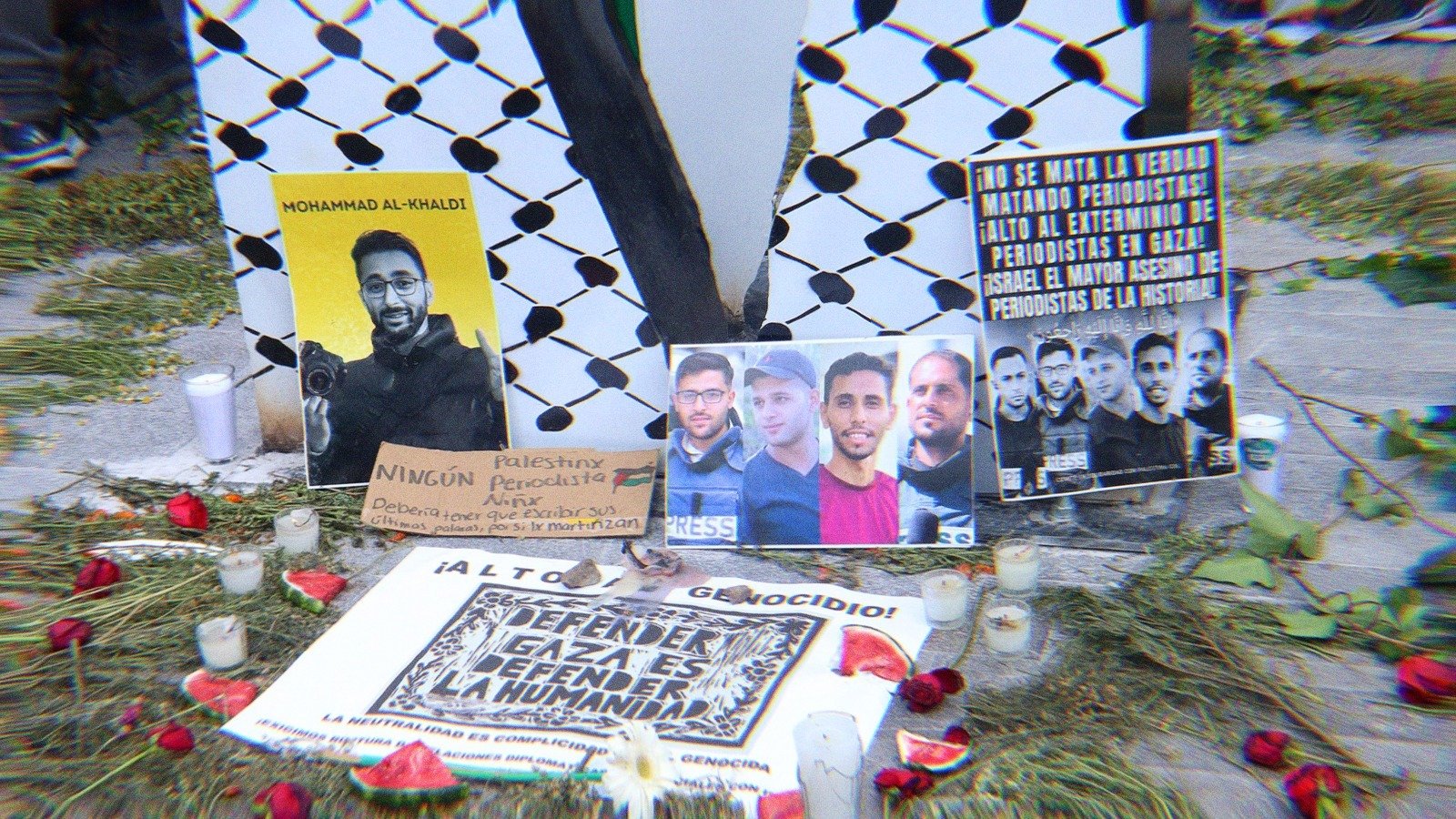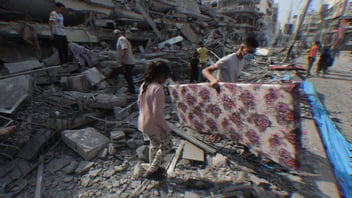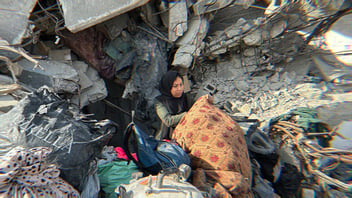Silencing the Witnesses: Why Israel Is Killing Gaza’s Journalists
 Image Description: A memorial in Mexico City in memory of journalists Anas al Sharif and Mohammed Qreiqeh Ibrahim Zaher, Mohammed Noufal and Moamen Aliwa, killed by the Israeli Army.
Image Description: A memorial in Mexico City in memory of journalists Anas al Sharif and Mohammed Qreiqeh Ibrahim Zaher, Mohammed Noufal and Moamen Aliwa, killed by the Israeli Army.
This essay appeared in the Aug. 19, 2025 edition of UNFTR’s premium newsletter. Become a UNFTR member to receive our bonus newsletter each week and for other perks.
Israel last week snuffed out the lives of six journalists working in Gaza, adding to the historic death toll of reporters covering the genocide and making clear that anyone wearing a “press” vest in the bombed-out Gaza Strip is a target for elimination.
As of last week, at least 238 journalists in Gaza have been killed by Israel, which has been prosecuting a genocidal campaign against the Palestinian people for nearly two years, all with the financial and political backing of the United States.
The slaughter, to be sure, has bipartisan support, with the Biden administration initially funneling tens of billions to Israel’s far-right government and publicly giving credence to Israeli lies. For months, people like former U.S. State Department Spokesperson Matthew Miller and John Kirby, who essentially served as Biden’s national security spokesperson, provided endless cover for Israel, gaslighting the entire world in the process.
“There is no obstacle like someone bearing witness, testifying to everyday realities and giving their heart and soul to a cause—the truth.”
Take, for example, former Secretary of State Antony Blinken, who on Dec. 28, 2023, noted that the preceding months had been “extraordinarily dangerous…for press around the world.”
“Many killed,” he added. At the time, nearly 70 journalists had been murdered by Israel, with Blinken among its fiercest defenders.
Adding salt to the wound, Blinken ended the message saying, “I am profoundly grateful to the press for getting accurate, timely information to people.”
Clearly none of that was meant for Palestinian journalists, who have been among the first to debunk Israeli-U.S. claims amid the genocide, as they did when they reported that the new aid distribution system adopted this spring by Israel and the United States were death traps.
In true bipartisan fashion, Mike Huckabee, Trump’s U.S. Ambassador to Israel, recently appeared on broadcaster Piers Morgan’s show and defended Israel’s targeting of six journalists last week, including the murder of Anas al-Sharif, among the most prominent of the Palestinian journalists who had yet to be slaughtered. Huckabee said Israel was justified in its attack because al-Sharif had appeared in a photo with a Hamas leader at one point—to which even Morgan said is common and not nefarious.
The prospect that a journalist could be killed for reporting on the genocide has been treated as such an inevitability that al-Sharif penned a letter back in April in preparation for his demise.
“If these words reach you, know that Israel has succeeded in killing me and silencing my voice,” he wrote. “I have lived through pain in all its details, tasted suffering and loss many times, yet I never once hesitated to convey the truth as it is, without distortion or falsification—so that Allah may bear witness against those who stayed silent, those who accepted our killing, those who choked our breath, and whose hearts were unmoved by the scattered remains of our children and women, doing nothing to stop the massacre that our people have faced for more than a year and a half.”
Al-Sharif and so many other slain journalists working in Gaza exemplified something that a source would so often share: “The pen is mightier than the sword.” For the United States and Israel, the pen is the weapon. Once the person wielding that instrument is erased, the war—genocide in this case—becomes easier to win. There is no obstacle like someone bearing witness, testifying to everyday realities and giving their heart and soul to a cause—the truth.
There’s something that has to be said about the rapid rate at which journalists have been killed in Gaza: It seems we may be inching closer to Israel’s endgame. With the journalists gone, there’s no one to stand in their way. Why do we think they haven’t allowed Western journalists into the Gaza Strip in the first place?
The news out of Gaza is no doubt grim and unbearable to read, day in and day out. As the world’s first live-streamed genocide, it has tested people’s capacity to endure images and video of a decimated population, often some of the most gruesome and horrific scenes ever witnessed.
What happens to Palestinians when there are no more witnesses? Twenty-two months of a genocidal war tells us Gaza is in store for more brutality, with fewer journalists defiantly broadcasting the truth.
For those who’ve been killed, however, their act of rebellion—journalism—may echo in the hearts and minds of Palestinians for generations—a reminder, even with all hope in humanity seemingly lost, that the testimony of the fallen will travel, that they will be heard, that justice will come.
That someone else will pick up the pen.
Image Source
- ProtoplasmaKid, CC BY-SA 4.0, via Wikimedia Commons. Changes were made.
Rashed Mian is the managing editor of the award-winning News Beat podcast and co-founder of the newly launched Free The Press (FTP) Substack newsletter. Throughout his career, he has reported on a wide range of issues, with a particular focus on civil liberties, systemic injustice and U.S. hegemony. You can find Rashed on X @rashedmian and on Bluesky @rashedmian.bsky.social.


